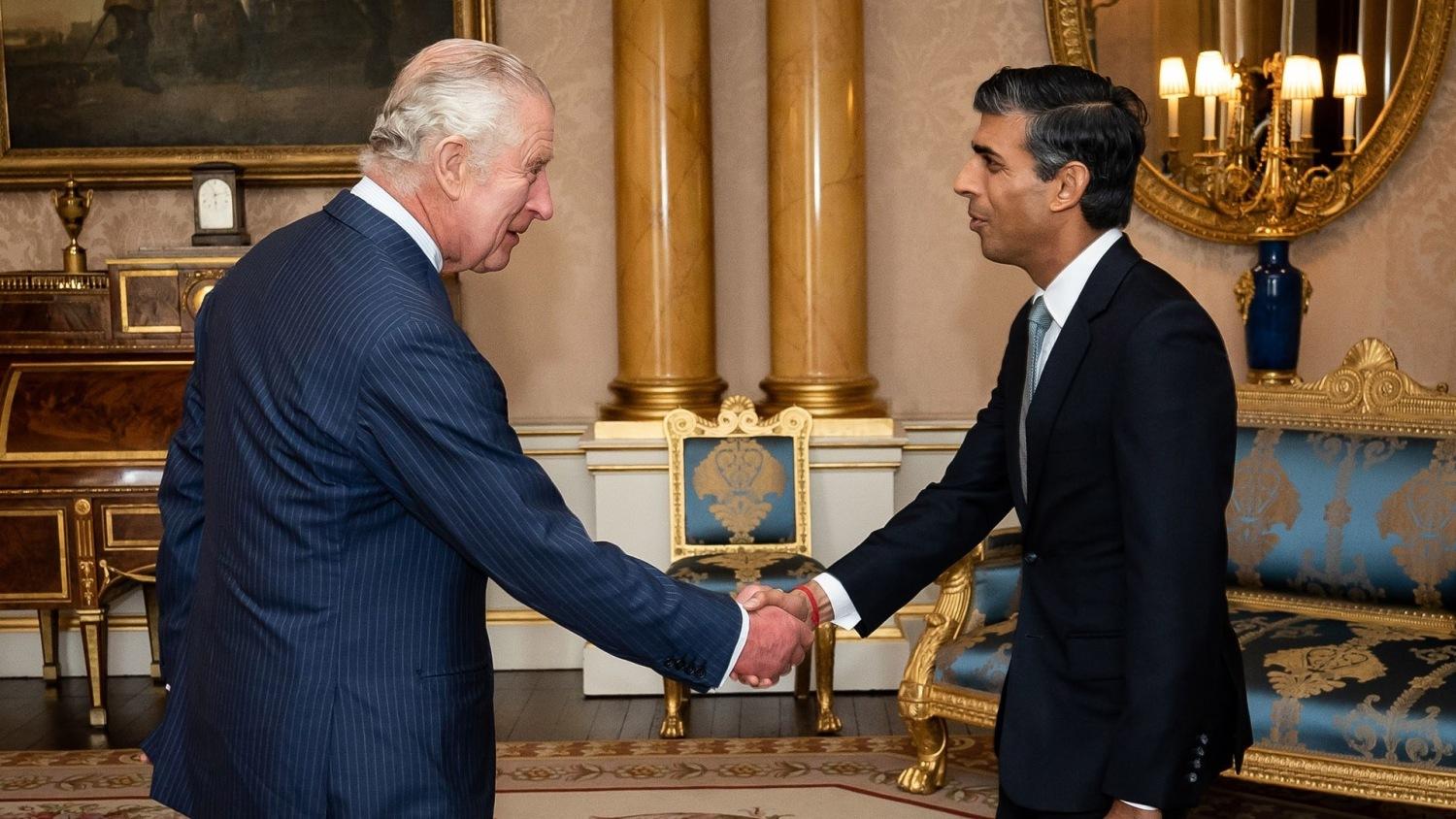By Brian Ly | Staff Writer

Following former British Prime Minister Liz Truss’ resignation on Oct. 20, Rishi Sunak was officially announced prime minister on Oct. 25 after the traditional meeting with the current sovereign, King Charles III, at Buckingham Palace. Tasked with unifying the governing conservative party, Sunak is also inheriting an economy nearing recession after struggles with high energy prices and inflation after Truss’ economic plan.
Sunak won the bid to become prime minister after Johnson withdrew and his remaining rival Penelope Mordaunt conceded after failing to reach the threshold of 100 Conservative lawmakers to stay in the race. Sunak’s ascent to leadership cements him as not only the youngest British leader in the last 200 years, but also the first person of color and Hindu leader to serve as the U.K’s prime minister.
Sunak has previously served as a conservative Member of Parliament for Richmond in 2015, and notably served as the Chancellor of the Exchequer under Johnson in 2020 when he introduced numerous measures to support the U.K economy during the beginning of the COVID-19 pandemic.
In response to the economic struggle the U.K is currently facing, the prime minister is anticipated to introduce mandates opposite to the ones proposed by his predecessor Truss. He is expected to cut government spending and increase taxes, offering solutions that are likely to stabilize the economy over time but will introduce further turmoil in the short term.
“There is no doubt we face profound economic challenges,” Sunak said in a statement on Oct. 24. “We now need stability and unity, and I will make it my utmost priority to bring my party and country together.”
To aid his leadership, Sunak is set to appoint a cabinet as soon as possible after his victory, announcing that he would retain Treasury chief Jeremy Hunt and senior officials such as Foreign Secretary James Cleverly and Defense Secretary Ben Wallace. Home Secretary Suella Braverman, who resigned a week before Truss’ resignation, was also given her position back.
The prime minister’s decision to bring back numerous officials from Johnson’s cabinet has drawn criticism from opposing parties.
“This is not a fresh start. It’s the same Conservative cabinet of chaos,” opposition Labor Party lawmaker Rosena Allin-Khan stated on Twitter.
Sunak’s time in office follows Truss’ term, with her 50 days as prime minister regarded as the shortest-serving term in U.K history. She was elected on Sept. 6 after Johnson resigned from the position in July, beating Sunak at the time.
Presiding over the national mourning period following Queen Elizabeth II’s death on Sept 8, Truss also unveiled an economic plan on Sept. 23 that involved numerous tax cuts that weakened the value of the British pound and raised interest rates across the country. The result was her finance minister, Kwasi Kwarteng, being replaced with Hunt, who would shortly remove a majority of Truss’ unfunded tax cuts and cut short government payments that aimed to keep energy prices lower for consumers.
Following this, many officials called for Truss’ resignation after the plan worsened already high energy and food prices with further inflation and heightened borrowing costs.
